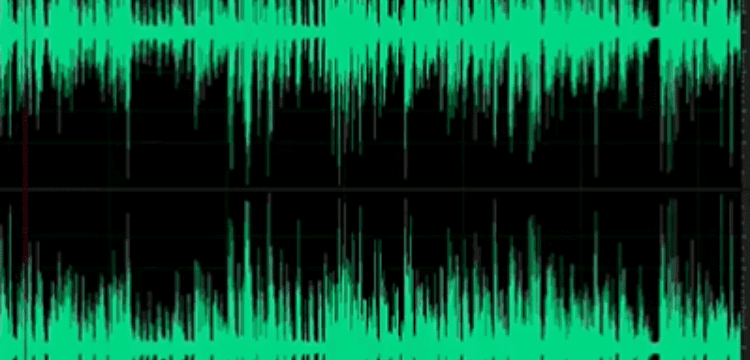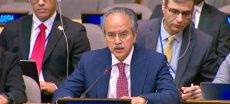[vc_row][vc_column][vc_column_text dp_text_size=”size-4″]ISLAMABAD: Already preoccupied with political cases that have caused schism among the Supreme Court’s justices, the Court is now confronted with another major challenge in the form of audio leaks.
Some audio leaks purportedly involving SC judges and their family members have caused quite a stir in the country’s political arena since the start of the apex court’s suo motu proceedings over holding elections for two provincial assemblies within 90 days.
However, the Supreme Court has exercised judicial restraint by declining to institute a separate proceeding to address the issue.
However, in a case involving the transfer of former Lahore city chief police officer (CCPO) Ghulam Mahmood Dogar, Chief Justice of Pakistan (CJP) Umar Ata Bandial stated for the first time on March 22 that audio and video leaks lacked authenticity.
He claimed that the tapes were used to launch a “scurrilous campaign against the judges,” but added that the judges were exercising restraint and not taking action against those responsible.
Since then, two leaked conversations have surfaced.
The most recent audio leak features a conversation between two women, one of whom is said to be CJP Bandial’s mother-in-law and the other the spouse of Khawaja Tariq Rahim advocate.
Rahim was one of the hosts of a recent lawyers’ function to show solidarity with the Supreme Court judges, who have pledged to uphold the constitutional provision requiring elections to be held within 90 days.
Also Read: Snapchat is making its ChatGPT AI features available for free.
He also represents a petitioner who is challenging the Supreme Court Practise and Procedure Act, 2023, which limits the CJP’s ability to initiate suo motu proceedings. Former Chief Justice Mian Saqib Nisar is allegedly heard giving legal advice to Khawaja Tariq Rahim in the second audio.
There are different aspects to audio leaks.
Everyone agrees that the trend of audio leaks must come to an end in order to ensure the privacy of citizens. Even the federal government is urging the CJP to take notice of the leaks.
However, some people also lay emphasis on highlighting the purpose behind the leaks.
According to some experts, the leaks are being released solely to target the judges who are determined to hold elections for the Punjab Assembly on May 14.
However, another section claims that the leaks are an important tool for exposing the true motive behind the judicial proceedings and unmasking the nexus of people who are supporting the Pakistan Tehreek-e-Insaf (PTI) by hatching a conspiracy against the coalition government.
Legal experts agree that retired judges should be subject to a code of conduct. Retired judges cannot currently provide formal legal advice because they are not registered with the Pakistan Bar Council (PBC) for the purpose of consulting.
However, in the latest audio leak former CJP Saqib Nisar is purportedly heard giving informal advice to Khawaja Tariq in order to establish a contempt case against top functionaries of the government.
Though there is no legal prohibition against giving such advice, retired judges should refrain from doing so in political matters on moral grounds.
To avoid any negative perception, a judge who recommended the nominations of several judges for elevation to the Supreme Court should not provide legal advice.
Interestingly, the three judges hearing the case involving the Punjab Assembly elections had a close relationship with former CJP Nisar during his tenure.
Legal experts believe that the issue of elections should now be referred to a full court.
Nisar, who is described as an “anti-PML-N” judge, has received flak for being “arrogant” and has repeatedly failed to end the perception that he was in cahoots with the security establishment to facilitate PTI chief Imran Khan’s ascension to power.
In case CJP Bandial takes up the audio leaks issue, questions may arise as to whether he should head the bench or not.
Had the Supreme Court bench led by CJP Bandial punished those who were involved in the surveillance of Justice Qazi Faez Isa and his family during the PTI rule, the trend of audio leaks could have stopped.
There is a need to initiate a dialogue within the Supreme Court before passing any order related to other institutions. However, CJP Bandial may take up a PTI petition for probing the audio leaks of government functionaries. The petition has not been scheduled for hearing despite passage of several months.
In October last year, Imran Khan moved the Supreme Court for the formation of a judicial commission or a joint investigation team (JIT) to investigate “illegal” surveillance, and recording of phone calls, including audio leaks from the Prime Minister’s Office (PMO).
The petition requested the court that the surveillance of the premier’s house and the PMO, as well as data recording and audio leaks, be declared unconstitutional and “in violation of law”.
A senior lawyer told that in the recent audio leak, former chief justice Saqib Nisar was referring to the case as “our case” which shows his interest in the judicial proceedings.[/vc_column_text][/vc_column][/vc_row]











